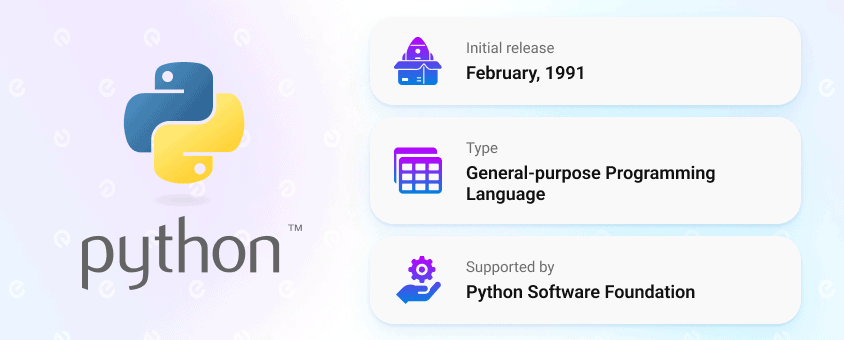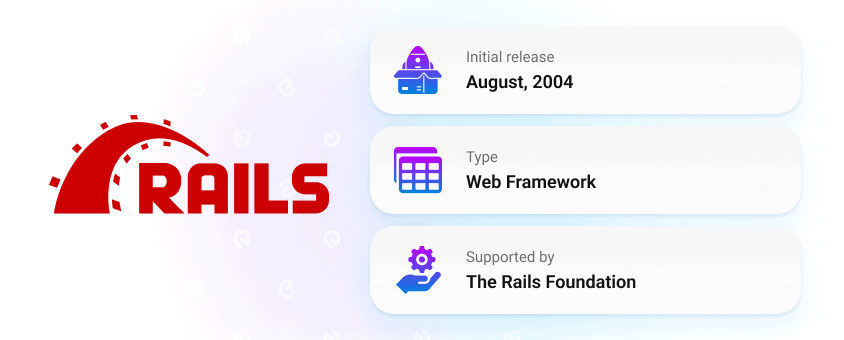
Updated: May 10, 2024
Published: September 5, 2023
Have you ever chosen some technology without considering alternatives? How significant is conducting the research for selecting a reasonable tech stack? How would you approach the evaluation of suitable options? In this article, we’ll focus our attention on Node.js alternatives and core aspects for consideration when comparing other solutions with one of the most used web technologies like Node.js.
List of the Content
- What is Node.js?
- Node.js alternatives 2023
- How do you choose between Node.js alternatives?
- Conclusion
The question of what technology to select for the project confronts every team starting software development. It’s clear that the tech choice would play a critical role in implementing the outlined product. The development team has to put considerable effort into finding tech solutions capable of meeting the set requirements.
Therefore, the choice between available options is a common step in the decision process. It’s a great practice to consider different solutions and make a detailed tech comparison. Looking at the range of Node.js alternatives, companies grasp a unique opportunity to select the best ones specifically to their needs. First, let’s start with discussing Node.js development and its specifications.
WHAT IS NODE.JS?
Bringing up the topic of Node.js alternatives works towards certain goals. The main point is that it helps to understand the technology better and learn more about its competitors. It won’t be that easy to make a choice without detailed research and a deep understanding of the project’s needs.
Taking into consideration that Node.js has become a strong market representative and the most used web technology, it’s often discussed among businesses and developers. Whether you’re getting started with web development or belong to a professional team, Node.js is still high on the list to become a primary choice.
So, what makes this technology so competitive among others? How does it enable developers to create scalable, efficient, and event-driven applications? And why is it important to consider Node.js alternatives in parallel?
Everything starts with the key features that Node.js provides:
- Non-blocking I/O: Node.js uses an event-driven, non-blocking I/O model. This means that instead of waiting for one operation to complete before moving on to the next, Node.js can handle multiple tasks concurrently. That is particularly useful for applications involving network or file system operations.
- Single programming language: Node.js allows developers to use JavaScript both on the client side and on the server side. That means that teams can use the same programming language for both ends of their application, which can lead to more consistent and streamlined development.
- Vast ecosystem: Node.js has a rich ecosystem of libraries and packages available through a Node Version Manager. This makes it easy for developers to incorporate pre-built modules into their applications, saving time and effort.
- Scalability: Due to its event-driven architecture, Node.js is well-suited for building highly scalable applications that need to handle a large number of simultaneous connections. This is particularly beneficial for real-time applications like chat applications, online gaming, and collaborative tools.
- Community support: Node.js has a strong and active community that continuously contributes to its development, updates, and improvement. This community support ensures that the platform remains up-to-date and responsive to emerging needs.
Node.js is commonly used to build various types of applications, including web servers, APIs, microservices, real-time applications, IoT applications, and more. It has gained significant popularity in the web development community and has been used by numerous companies to create efficient and performant applications.
WHAT ARE THE TOP NODE.JS ALTERNATIVES?
The detailed research on the technology also includes checking on its competitors. This step outlines better opportunities and unveils the required functionality of each technology. As a result, businesses and developers gain a clear understanding of the capabilities of the chosen solutions.
Java as an alternative to Node.js
Talking about viable Node.js alternatives, many teams could consider this multipurpose programming language, Java. Since it’s built around the principles of object-oriented programming, it encourages modularity and reusability of code. Both technologies have distinct characteristics that make them suitable for various types of applications and scenarios. Let’s consider some of the features that differentiate Java from other Node.js alternatives.
- Type: Java is a multipurpose programming language, while Node.js is a runtime environment using JavaScript as its programming language.
- Concurrency: Node.js excels in handling a large number of simultaneous connections due to its event-driven, non-blocking nature. Java also supports concurrency but may require more careful management of threads.
- Performance: Java’s JVM-based execution can provide consistent performance across platforms, whereas Node.js’s non-blocking architecture can lead to high performance for certain types of applications that involve many concurrent connections.
- Ecosystem: Java has a mature and extensive ecosystem with a great range of frameworks and libraries for various purposes. Node.js has a vibrant and rapidly growing ecosystem thanks to its NPM repository.
- Learning Curve: Java might have a steeper learning curve due to its static typing and broader language features. JavaScript used with Node.js is generally considered easier to learn, especially for developers with web development experience.
- Use Cases: Java is commonly used for enterprise applications, Android app development, and larger-scale systems. Node.js is often chosen for real-time applications, APIs, and lightweight microservices.
In summary, Java excels in versatility and enterprise applications, while Node.js shines in building scalable, real-time applications with its event-driven, non-blocking architecture. The choice between them often depends on the specific requirements and the developer’s familiarity with the language and ecosystem.
How to make a choice between Node.js and Java?
We can also recommend another article for consideration and learning additional details.
ASP.NET as an alternative to Node.js
Discussing the topic of web technologies bringing .NET is out of the question. That is a strong market competitor that could also be referred to as Node.js alternatives as it’s often leveraged in web development. .NET is a developer platform with some tools, programming languages, and libraries for building various applications. The known web framework ASP.NET is widely used in creating web applications and services.
- Type: ASP.NET is a web framework that primarily supports C# and other .NET languages.
- Concurrency: The .NET platform follows a more traditional, server-centric approach, while Node.js introduces an event-driven, non-blocking paradigm.
- Performance: Node.js is known for its lightweight and efficient event-driven architecture, which can lead to impressive performance in certain use cases. ASP.NET also offers good performance, and the choice between the two might depend on the specific workload and optimizations.
- Development Tools: Both ecosystems have robust development tools. Visual Studio is a powerful IDE for .NET, while Node.js development often leverages lightweight editors along with tools like Visual Studio Code.
- Community: ASP.NET is favored for a strong .NET community and official support from Microsoft. Node.js has a large and active open-source community with support from various organizations and developers.
- Learning Curve: ASP.NET may have a steeper learning curve, especially for those new to C# and the Microsoft ecosystem. Node.js is relatively easier to learn, especially for developers familiar with JavaScript.
- Use Cases: ASP.NET allows developers to build dynamic web applications, APIs, and web services using a variety of programming languages, with C# being the most common choice. Node.js is particularly popular for building scalable and real-time applications, such as APIs, web servers, and networking tools.
ASP.NET belongs to a versatile .NET platform suitable for delivering various application types, while Node.js is specialized for building real-time, event-driven applications. The choice always depends on the specific requirements and goals of your project.
Python as an alternative to Node.js
The next Node.js alternative is Python, a versatile, high-level programming language. It’s known for its simplicity and readability. It’s used for a wide range of applications, including web development, data analysis, scientific computing, machine learning, automation, and more. Here are some of the important features to focus on.
- Type: Python is a high-level, interpreted, and general-purpose programming language.
- Concurrency: Python can limit its performance in multi-core scenarios, while Node.js is designed for asynchronous, non-blocking I/O, making it great for handling many simultaneous connections.
- Performance: Node.js is optimized for handling high concurrency and I/O-bound tasks. Python is versatile and well-suited for various tasks, from web development to scientific computing. Its performance depends on the specific use case and libraries being used.
- Ecosystem: Both languages have robust ecosystems, but Python’s ecosystem is more diverse due to its broader range of applications. Python provides a vast ecosystem of third-party libraries and frameworks that extend its capabilities. For example, Django, a popular web development framework, is often considered among Node.js alternatives.
- Community: These communities embrace open source, but Python’s longer history has led to a more established culture of collaboration. Python’s community is broader in terms of application domains, while Node.js’s community is more specialized in web and real-time development.
- Learning Curve: Python’s easy-to-read syntax can make it more approachable for beginners, while Node.js can be advantageous for front-end developers familiar with JavaScript.
- Use Cases: Python is versatile and well-suited for a wide variety of tasks, while Node.js excels in building real-time, event-driven, and highly scalable applications. Both have rich ecosystems, but Python’s breadth extends across various domains, while Node.js is particularly strong for web and network-related applications.
Python’s ease of learning and its widespread use in various industries have contributed to its position as one of the most popular programming languages. In many cases, Node.js tends to excel in scenarios requiring rapid, asynchronous responses, while Python is often chosen for its ease of use, wide ecosystem, and diverse application domains.
Django as an alternative to Node.js
Another technology to consider among Node.js alternatives is Django, a high-level web framework written in Python. It’s commonly used for web development but unveils different approaches, ecosystems, and use cases compared to Node.js. Let’s consider some of the core details.
- Type: Django is a web framework that follows the MVT architectural pattern. Besides, Django uses Python, while Node.js uses JavaScript. The final choice might often depend on familiarity with the language or the team’s expertise.
- Architecture: Django enforces a specific architecture, while Node.js provides more flexibility in choosing an architecture or combination of libraries. The difference in decision-making is influenced by the nature of the project’s requirements and developers’ preferences.
- Asynchronous Handling: Node.js excels at handling a large number of concurrent connections due to its non-blocking nature. Django’s asynchronous capabilities have improved in recent versions, but Node.js is generally considered more suited for high-concurrency scenarios.
- Ecosystem: Django has a rich ecosystem of built-in features and a wide range of third-party packages available through Python’s package manager, Pip. Node.js presents a vast ecosystem of modules available through npm for various tasks.
- Learning Curve: Django’s comprehensive documentation and “batteries-included” philosophy can lead to quicker development for those already familiar with Python. Node.js might have a steeper learning curve, especially if you’re new to JavaScript on the server side.
- Use Cases: Django is often favored for content-heavy applications, e-commerce platforms, and applications requiring rapid development. Node.js is well-suited for real-time applications, APIs, microservices, and applications with a high degree of interactivity.
The choice between Django and Node.js depends on your project’s requirements, your team’s expertise, and your personal preferences. Django is often chosen for its comprehensive features and security, while Node.js is preferred for real-time and asynchronous applications.
Looking for some additional details on these technologies?
We suggest checking our latest article with a comprehensive comparison between Django and Node.js.
Ruby on Rails as an alternative to Node.js
RoR is another alternative to Node.js with its convention over configuration approach. This web framework becomes an excellent choice for teams looking to rapidly prototype and develop applications while benefiting from a well-defined structure and a rich ecosystem of pre-built solutions.
- Type: Ruby on Rails is a full-stack web app framework written in the programming language Ruby.
- Flexibility: Ruby on Rails has a defined structure and set of conventions, which can speed up development but might limit flexibility in certain architectural decisions or customizations. Node.js offers more flexibility in terms of architecture and design choices, allowing developers to craft solutions fitting project-specific needs.
- Performance: Ruby on Rails might be less performant for certain scenarios due to its synchronous nature, although optimizations and caching can help mitigate this. Node.js can handle high levels of concurrency efficiently, making it perform well for certain applications.
- Ecosystem: Ruby on Rails has a well-established ecosystem of gems that provide ready-made solutions for common tasks, saving development time. At the same time, Node.js has a wider range of use cases and a massive library repository.
- Community: Both RoR and Node.js have active communities, but Ruby’s community is often associated with its focus on developer experience and creativity, while Node.js is known for its scalability and asynchronous capabilities.
- Learning Curve: Ruby on Rails provides a set of conventions and guidelines that can make it easier for beginners to get started. Node.js might have a steeper learning curve for beginners due to its asynchronous programming concepts, event-driven architecture, and the need to manage dependencies and architectural choices more independently.
- Use Cases: RoR is great for quickly building web applications, especially MVPs. Node.js is particularly useful for real-time applications, APIs, and applications with heavy I/O.
It’s important to remember that the choice between Ruby on Rails and Node.js depends on various factors, including project requirements, the development team’s expertise, and the specific goals of the application you’re building. However, we should emphasize that the RoR market share has significantly decreased over the past few years while Node.js keeps on growing.
NODE.JS ALTERNATIVES: HOW TO MAKE A CHOICE?
When considering alternatives to Node.js for development needs, it’s important to evaluate the options based on project-specific requirements, team expertise, and the features and characteristics the company values most.
But at the same time, there’s no one-size-fits-all answer, and the best alternative for your project will depend on specific needs and constraints. It’s often a good idea to evolve a step-by-step guide on how to evaluate Node.js alternatives. Besides, you can consult with experienced developers or technical experts who have worked with the alternatives to Node.js you’re considering.
How to set up your dedicated development team?
Existek is a software development company focusing on the exceptional service we’d like to experience ourselves. We’ll be glad to help extend your existing team or build a dedicated one from scratch.
It’s worth saying that every team undergoes a similar process of technology evaluation. Regardless of the final choice, it’s recommended to focus attention on the following aspects:
Defining project requirements
Well-defined requirements have always been crucial for the project’s success. It enables the team to reach a common understanding of product goals and efficient ways to implement outlined solutions. The development team covers scope control, resource allocation, risk identification, time management, cost estimation, etc. And it isn’t surprising that technology choice is worth special attention. Knowing your project requirement is the first step to efficiently evaluating Node.js and its alternatives for your project.
Considering constraints
Project constraints are essential factors that can influence the planning, execution, and launch of a project. It’s crucial to consider these constraints from the beginning to ensure that your project stays on track and meets its objectives. The technology choice is something that is supposed to streamline the overall process. At the same time, it can negatively affect the product execution if not properly chosen and managed. The team has to find the suitable technology fit to build the outlined software.
Researching technology options
In the light of discussing Node.js alternatives, teams obviously check through Node.js and its viable options. It’s essential to conduct comprehensive research about the technology functionalities, platform compatibilities, community support, developers’ availability, development rates, etc. Besides, it’s important to stay updated as the tech market evolves really fast. It might even be necessary to iterate and adapt the technology stack. Therefore, Node.js has become a common choice due to both tech characteristics and market popularity.
Evaluating the pros and cons of main competitors
As long as your company narrows down the suitable options, it discovers viable alternatives to Node.js. It’s required to assess the pros and cons of each technology and find out how it could benefit your project. That may involve reading documentation, articles, and reviews and consulting with experts if possible. Make sure to consider such aspects as:
- Security and scalability
- Performance
- Development speed and ease of use
- Learning curve
- Development cost
- Community and developer support
Making a decision
Based on your research, evaluations, and analysis, make an informed decision on the technology stack for your project. Remember that there is never a one-size-fits-all solution. Indeed, it’s more about choosing the right one that covers your business-specific needs and brings all the necessary functionality to deliver your successful projects. The company needs to stay updated on the latest advancements within the chosen technology to ensure the project remains current and secure.
As a result, any mentioned technology can become a good match for specific projects. The main thing is that the choice has to be supported by the necessary features and benefits your product gets from it. Of course, some become stronger market representatives and have a wider adoption, like Node.js, ASP.NET, and others. However, the final choice only depends on the team’s needs and preferences for Node.js or its alternatives.
CONCLUSION
The technology choice is a vital part of the overall development process. The team takes responsibility for making informative decisions and selecting the best solutions. Later, it plays a crucial role in delivering a full-fledged product while meeting functional and non-functional requirements.
Bringing the topic of Node.js alternatives, we’ve discovered other viable options for software development. Besides, it helps us define the strengths of Node.js and why it’s so popular in the market. Like with any other tech choice, teams have to put more effort into finding suitable options. Node.js has gone a long way and doesn’t seem to go anywhere anytime soon.
Need professional assistance?
Feel free to contact Existek. Our team has extensive software development experience and could help bring the best tech practices to deliver your desired products.
Frequently asked questions
What is Node.js?
Node.js is an open-source, cross-platform JavaScript runtime environment allowing developers to build server-side and network applications.
Why is Node.js popular among developers and businesses?
Node.js provides a powerful platform for building efficient and scalable server-side applications using JavaScript. Its non-blocking and asynchronous nature makes it well-suited for handling I/O-heavy tasks and real-time applications.
What are popular Node.js alternatives?
As for the main Node.js competitors, the most market share belongs to Java, ASP.NET, Python, Django, and RoR.
How to evaluate Node.js alternatives?
The tech choice always undergoes a certain process of evaluating the available market representatives. It helps to underline the strengths and downsides of every suitable technology and find the right one for your project. In the case of Node.js and its alternatives, teams have to consider the following aspects:
- Project requirements
- Scalability
- Performance
- Development tools
- Learning curve
- Community and support
- Use cases
- Long-term viability







